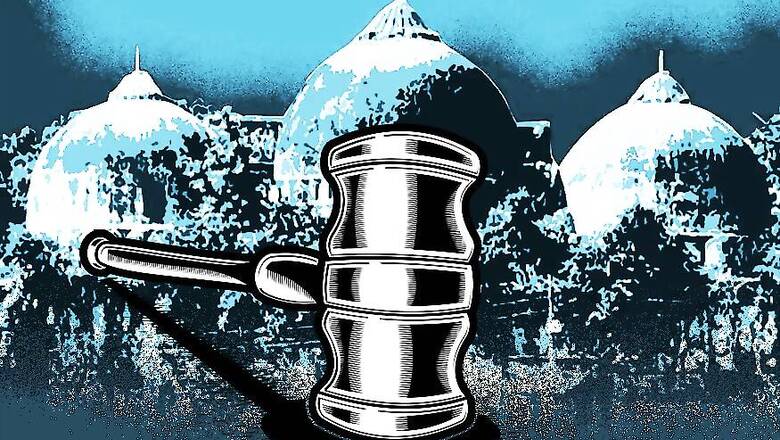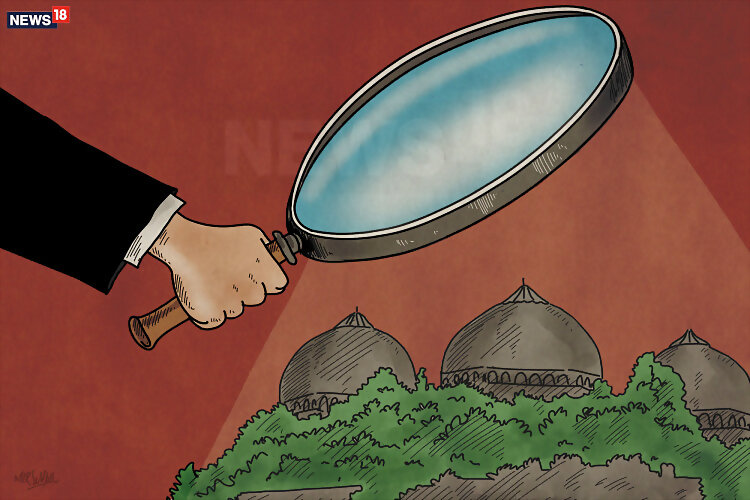
views
New Delhi: The Supreme Court on Thursday declined to revisit the observations in its 1994 judgment that a mosque is not integral to Islam, clearing the way for hearing in the politically charged Ayodhya land dispute.
In a majority verdict of 2:1, the apex court bench headed by Chief Justice Dipak Misra said the Babri Masjid-Ram Janmabhoomi civil suit has to be decided on the basis of evidence and the previous verdict has no relevance to it.
Justice Ashok Bhushan, who read out the judgment for himself and the CJI, said it was necessary to consider the context in which the five-judge bench had delivered the 1994 judgment.
The ruling at the time was only related to acquisition of land, the court said. "All religions, all mosques and temples churches are equal. We have already noticed all religious planes are liable to be acquired as per 1994 verdict," Justice Bhushan said.
Although Justice Bhushan accepted that the observation made in 1994 that namaz could be offered anywhere and that a mosque was not necessary for this was “questionable”, he maintained that the “facts of the Ismail Farooqui case do not apply to the title dispute”.

News18 Creative by Mir Suhail
Justice S Abdul Nazeer disagreed with the two judges and said whether mosque is integral to Islam has to be decided considering belief of religion and it requires detailed consideration. He said the questionable observation of 1994 verdict had permeated into the Allahabad High Court's decision in land dispute case.
He referred to the recent Supreme Court order on female genital mutilation and said the present matter be heard by larger bench.
The apex court said now the civil suit on land dispute will be heard by a newly constituted three-judge bench on October 29 as Justice Misra will retire on October 2 as the CJI.
The issue of whether mosque is integral to Islam had cropped up when the three-judge bench headed by CJI Misra was hearing the batch of appeals filed against the Allahabad High Court's 2010 verdict by which the disputed land on the Ram Janmabhoomi-Babri Masjid area was divided in three parts.
A three-judge bench of the high court, in a 2:1 majority ruling, had ordered that the 2.77 acres of land be partitioned equally among three parties — the Sunni Waqf Board, the Nirmohi Akhara and Ram Lalla.
The Muslim appellants said that the 1994 observation has affected status of mosques in Islam and the question should be answered before the court goes into the main title dispute.
Arguing for them, senior advocate Rajeev Dhavan had told the court that “if congregation part of Islam is taken away, a large part of Islam goes worthless”.
Advocate Zafaryab Jilani, the convenor of the Babri Masjid Action Committee, said Wednesday's verdict was not a setback. "It is not at all a setback. It just means the trial will start now. The court has clarified that the observations made by a Supreme Court bench in the Ismail Farooqi case of 1994 were made in a particular context and not related to this case. I think that serves the purpose," he told reporters.
The verdict, however, has given a shot in the arm to the Bharatiya Janata Party (BJP), which swept to power in 2014 on the promise of building the Ram Temple and expects to use the issue as a poll plank ahead of the 2019 elections.




















Comments
0 comment